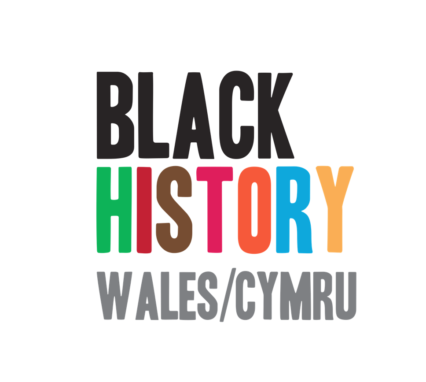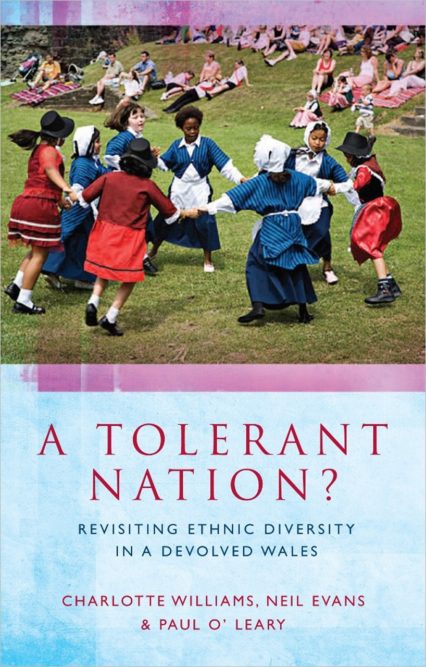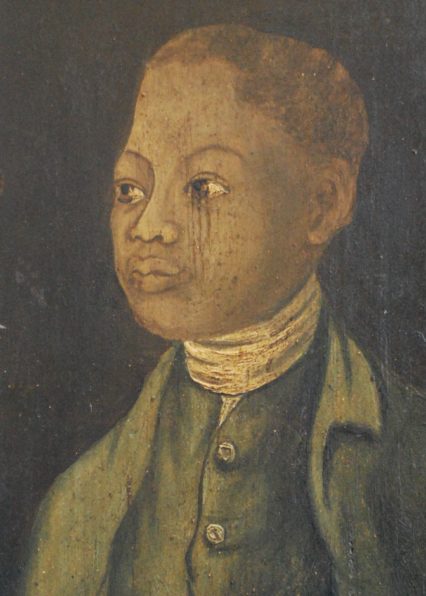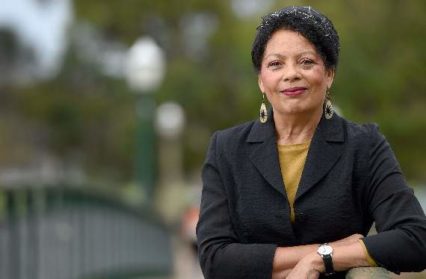Teaching children about the true history of ethnically diverse communities in Wales is a vital step in changing attitudes towards ethnic minorities, but should schools and teachers take control of what is taught? Professor Charlotte Williams, Chair of Black, Asian and Minority Ethnic (BAME) Communities, Contributions and Cynefin in the New Curriculum Working Group speaks to Darren Chetty about how our education system will change.
Professor Charlotte Williams OBE is Chair of the Black, Asian and Minority Ethnic (BAME) Communities, Contributions and Cynefin in the New Curriculum Working Group. She is Honorary Professor at the School of History, Philosophy and Social Sciences at Bangor University and Honorary Fellow at University of South Wales. Her books include Sugar and Slate, Race and Ethnicity in a Welfare Society and A Tolerant Nation? (as co-editor with Neil Evans and Paul O’ Leary).
Darren Chetty lectures at University College London. He co-authored (with Adam Ferner) How To Disagree: Negotiate Difference in a Divided World and co-edited (with Judith Suissa) Critical Philosophy of Race and Education. He is a member of the Wales Arts Review advisory group and is currently co-editing, with Grug Muse, Hanan Issa, and Iestyn Tyne, a collection of essays entitled Welsh (Plural).
Darren Chetty: First of all, how was the team assembled?
Charlotte Williams: I had an opening conversation with Welsh Government civil servants and we had some recommendations from Race Council Cymru. There were also some recommendations from Uzo Iwobi, who is Special Adviser to the Deputy First Minister, Jane Hutt. I was trying to keep the group itself to about twelve people, but I met with a whole load of people beyond the group to have discussions.
Darren Chetty: I wanted to ask about the title of the group that you chair: Black, Asian and Minority Ethnic (BAME) Communities, Contributions and Cynefin in the New Curriculum Working Group. I’ve asked my Welsh-speaking friends if ‘Cynefin’ has a special meaning in Welsh; their take was that it hasn’t particularly, it means sort of habitat. And yet I saw in the footnote of the interim report that it seems to be gaining a richer definition. Do you know what the thinking was behind using a) a Welsh word and b) that particular one?
Charlotte Williams: I asked that question myself because the title was a given by the minister. In discussions and development of the curriculum, which had been going on long before I got involved, this idea emerged as a grounding concept. It’s a guiding principle for the idea that in all areas of Wales, schools and teachers would be responsible for building their own curriculum bottom-up rather than it being a top-down, imposed, prescribed curriculum; that they would, from the grassroots, build their own curriculum.
Now that the idea had started to develop, it was in discussions about the architecture of the new curriculum that this concept emerged. I tried to establish who the key author of it was. My sense is that this has been subject to interpretation; as I understand it, it is very much about your own habitat, your own environment. It is most salient to you, and you should start with what’s very salient to you in terms of your identity and who you are. From that you can build out to the story of Wales – ‘Story Cymru’ – and from ‘Story Cymru’ outwards to a global and international scale.
I have, however, been challenged on the use of Cynefin; somebody along the way said to me, “Well, yes, there’s Cynefin but it doesn’t really go with Black, Asian and Minority Ethnic people does it?” And I said, “Yes, it does, and if the understanding of it resonates with a kind of old ethnic traditionalist vision of Wales, then it needs disturbing”. If we are to keep it in our title we’re going to have to rehearse in our document what we understand by Cynefin, because it’s got its limitations for us. One limitation is that if you perceive that there are no Black, Asian or Minority Ethnic people in your community, you won’t pay attention to those issues in building your curriculum. So, if we interpret it in this traditionalist way, it’s not going to work. We had a big discussion about this in our last meeting, and I was saying, I’ve been schooled in Wales from the age of five and I could speak to Cynefin in terms of my own experience. If it’s going to exclude Black people in a highly mobile and highly interconnected world, and it’s going to be a restricting concept, we have to discuss that in our report. So that’s kind of where we’re up to with Cynefin!
Darren Chetty: It sounds like the document itself is trying to develop a new definition.
Charlotte Williams: Yes, that’s how I have taken it forward. When I first convened the group in August, we were given a script about Cynefin, but I now feel that we have to do some work with it to really communicate what we understand by Cynefin in relation to these issues.

Darren Chetty: In a recent interview you were quoted as saying, “Education can’t solve social injustice and racial injustice”. That reminds me of something that Basil Bernstein said: “Education cannot compensate for society”. With this group, you’re working on education – what can it do?
Charlotte Williams: I think the public at large, the Black Lives Matter movement and the Black History movement in Wales all have a lot of expectations around this piece of work.
They think that if we get the curriculum right, somehow children won’t be subject to racism at school and they will more broadly grow up in an open-minded internationalist kind of way. That’s why I flagged that this is not the answer on its own.
It’s not the solution in isolation, but as we know, education at all levels brings us together with things that we haven’t necessarily understood fully before. The whole idea of it is that we engage with different perspectives in an open way; different ideas, different identities, as a two-way or a several-way process. I think that what education can do is provide the framework for that to happen. In those contexts, in those social spaces we call schools, interaction and the quality of that interaction is a framework for the development of the child or the young person.
I’m very optimistic and I’ll repeat what I’ve said to the group: this hasn’t happened before in Wales. It’s not going to happen in England because they’ve got a different view on this altogether – politics and schools and all the rest of it – they’re very touchy about that. We’ve got a fantastic opportunity. It coincides with the fact that in 2021 we’ll have the Race Equality Action Plan, which the government is very receptive to. They’ve asked us to look at this. Let’s be bold, and go for it! Let’s be optimistic that we’re starting a process not concluding a process, and that’s very important.
Darren Chetty: I have a sense that there are two issues with the new curriculum. One is this emphasis on the bottom up, which will place an awful lot of pressure on teachers who are already very busy. The other issue is the prioritisation of skills over knowledge. There’s a lot about cultivating ‘good attitudes’, but it doesn’t get very prescriptive on what knowledge would be required. My concern is that there may be another generation that grows up relatively ignorant about Black history because the teachers, having been educated in a system that hasn’t included Black history, haven’t necessarily got the means to address that. Would you like to see more knowledge in the curriculum?
Charlotte Williams: Yes, we are, as a group, very aware of this tension. On the one hand, this new curriculum is very ambitious in terms of autonomy and being creative. But practically, it assumes that the typical teacher can be a researcher who has a bedrock of knowledge across the board, not only of the concerns that we’re putting forward but, of all these kinds of issues – even those who won’t necessarily have had that education themselves.
So yes, it’s a big tension. And it’s not one that we can resolve overnight. The group has deliberated hard on ‘mandatory content or not mandatory content’. The spirit of the new curriculum suggests not mandatory content. And interestingly, what I have been reading more broadly about history and curricula suggests that the historians themselves don’t think that there should be any kinds of absolutes; only questions to ask and considerations to take forward in terms of histories. That’s the more general view because as soon as you start to prescribe content, then you have to say, ‘What content? Why?’ and so on. That’s not our remit. Our remit is to say, “Okay, this is the new curriculum as has been designed. How can we ensure that these issues, perspectives, contributions and experiences become part and parcel of the thinking of the teacher?”
Now, what we can prescribe are things about their training – knowing that that will take a long time to roll through. What we can also suggest is mandatory training for the established teachers. We can give them clear guidance on how to do this; we can give them exemplars; we can draw attention to practices; we can sign-post. We can support this activity as much as possible, but we can’t absolutely ensure it. And maybe that’s for the future. For now, we can put in place baseline materials, network people and suggest how they can work together to share and build resources, but we can’t sit down and write content or a curriculum.
We’ve talked to Qualifications Wales, and they’re talking about a new Social Studies GCSE that hasn’t been there before. That could provide an avenue for the type of specific content at that level, of course. But yes, it’s a tricky one. And I don’t want to skirt around the fact that there is tension there. I’m sure that relates more broadly to other perspectives as well; not only the perspective we’re concerned with, but other perspectives, as well as the intersections between those perspectives.
Darren Chetty: With that in mind, what does Initial Teacher Education (ITE) need to do? I think in the next section of your report you’re going to be making recommendations about ITE. Is that right?
Charlotte Williams: Yes, we are. We’ve had a meeting with the seven ITE providers. We’ve had a little look to see what research there is that tells us what kinds of models they’re using. Has there been any research in Wales in terms of ITE? It’s quite a desert. It is quite barren in this respect.
There is what’s called the #BAMEed group, and they’ve adopted that name from a wider network. It has only been constituted in the last few months, and they’re just getting going themselves. We’re about to do some focus groups with teachers from Black backgrounds and minority ethnic backgrounds. We’ve also talked to the Education Workforce Council about materials and data they’re putting out, and what recommendations they have. But yes, we are about to focus in on both Initial Teacher Education and Continuing Professional Development. Some of the questions that we’ve been asking are: What kind of training exists? What happens now? What would you like to see happen? What models and approaches are you using? How does that fit in with the partnership arrangements with schools?

Darren Chetty: I don’t know what percentage of teachers in Wales attend Welsh institutions to become teachers and that raises another potential issue: if you go to an English university, presumably you won’t be taught anything about Welsh history. Do you happen to know roughly how many of the teachers are training in Wales?
Charlotte Williams: From the 2019 statistics I know that forty-eight people from Black backgrounds entered into Initial Teacher Education. We know the composite number of teachers training in Wales, but we don’t have data on how many of them stay in Wales, how many of those working in Wales completed their education in Wales, or whether they’ve been recruited from elsewhere. But it’s an interesting comment and of course it worries the agenda on Welsh history generally as you point out. And not only that, but also bilingualism and all the ‘Made in Wales’ stuff we’re doing.
Darren Chetty: One of the four purposes of the new curriculum is to produce ethical, informed citizens of Wales and the world. That’s a really laudable aim, but I wonder how that sits with the duty to promote ‘Fundamental British Values’.
Charlotte Williams: I’m talking more broadly now than in my role in relation to the curriculum. One of the elements of the ‘DNA structure of Welshness’ is ‘we’re not the same as England and we’re not subscribing to English Britishness’. So, there’s already that kind of antipathy, culturally. That sense of Britishness is very much Englishness and therefore we’re not doing that. By the same token, there are struggles over Welsh national identity and there will be representations of Welshness to which not every pupil in schools in Wales wants to subscribe.
So, the same kind of argument about predominant values will exist in our schools in Wales, just as we caricature them in the British context – you know, cricket and cream teas, or whatever we say it is. Things like that make it very, very tricky in the Welsh context.
We haven’t got caught up in those kinds of areas, but they are big questions more generally. We’ve taken that term ‘ethical, informed citizens’ to mean that ethics relate to race and racism; ethical behaviour suggests that we have to deal with racism and get it out of schools and that children should be protected from being subject to racism in schools – I feel very strongly about this. I feel it’s a form of kind of institutional child abuse to let children go to school and allow them to be subject to racism and not do anything about it. We know that happens in schools across Wales and it’s got to be underscored that it is not acceptable in any terms. You can’t learn in that kind of environment. So, it doesn’t matter what the curriculum says, you will not be learning in an environment that is abusive to you. We’d like schools to have these deep conversations and create situations where they can really tussle with the issues that many of us tussle with, and have those conversations where they can learn what to say and how to say it. One of the things that teachers and Initial Teacher Education people were saying was that teachers are afraid of saying the wrong thing. They don’t know what the right to terminology is. They’re not confident about this.
Darren Chetty: I think teachers need to be able to have those conversations amongst themselves before they take them into classrooms, because they often don’t feel equipped.
Charlotte Williams: You can’t start to have those conversations with children unless you really have them yourselves. I thought that was excellent. We’ve circulated those to the group.
Darren Chetty: How will Wales’ place in the British Empire be taught? I know you’re not going prescriptive on the knowledge, but are there other guiding principles about understanding Wales in the context of the British Empire?
Charlotte Williams: In the vision statement I said every teacher in Wales will understand these things and be able to place them in the context of the history and development of Wales. So, trying to show that we are where we are in Wales because of these events and involvements and contributions is part of the big story of Wales.
That concern is a concern of Welsh history. Estyn is currently doing a review of Welsh History; how it’s taught, what’s taught, what kind of resources they need, and so on. This work is going along in parallel to the review of Welsh history, due to report late 2021. Part of that review is of Wales’ involvement in the empire. Our Black history is part of that, so that is going to be synced with what our group is saying.
This is an interesting debate and was picked up, unfortunately, in a rather horrid headline that the BBC took from our interim report. We had said that a lot of evidence suggests that if teachers focus too much on slavery, they produce a negative kind of climate in the classroom which impacts poorly on people from Black backgrounds, and that what they need is a balance. Then we got this headline: ‘BAME teaching focuses too much on slavery, report finds’. Of course, I was outraged because that’s misleading. What we were trying to say is that pupils need a balance of inputs. It’s similar when we’re talking about Jewishness and the Holocaust; they need a balance of inputs, right across.
We can point and link to people who are authoritative and write with expertise on these issues. It’s great that we’ve had that public monuments audit. Gaynor Legalls’ group have reported and that’s absolutely fantastic in terms of timing, because the audit is so comprehensive that we could say there’s nowhere in Wales that you can put a pin and not find some kind of involvement in slavery and empire. It’s good that that’s all out in the open as well.

Darren Chetty: Does this mean there’s going to be less tolerance of the narrative of Wales as England’s first colony and Wales as simply the victim of English globalism? This is a live debate, isn’t it?
Charlotte Williams: I doubt it. I talked about ‘Welsh DNA’ – that is Welsh DNA. What we have to do and what I learnt very early on in my lecture days was to start with that idea and to utilise it to point to the discrepancy of saying it’s the same – because it’s not the same. Start with how you feel. Start with being robbed of your language. Start with being run from your land. Start with being robbed of your identity. Then, ‘now, listen to this story,’ and it’s both a useful parallel and a tricky one. It allows you to start with things that are salient to individuals, salient to the nation. But it also allows that nation to obfuscate and say we’re nothing to do with it because we’re oppressed; we’re in the victim category so we can’t possibly do things like that to others. I spent a long time exposing that in A Tolerant Nation?. People often forget the question mark in the title of that book!
Darren Chetty: It’s a question mark, but I sense the answer was ‘Actually, no’.
Charlotte Williams: Yes, absolutely, absolutely. And probably continues to be. Although, I do think the fact that we’re having conversations like this in Wales now is a big difference even from when I took up the job in Australia eight years ago. There is a big difference in the willingness to have these kinds of conversations.
Darren Chetty: It seems to me that Wales is putting England to shame on this, on the approach to memorials, even the way Literature Wales is attempting to diversify. There’s a lot of good work going on.
Charlotte Williams: Yes, I find that even when we’re talking to practitioners, when we’re talking to school governors, when we’ve talked to the unions and so on, it’s a little bit like, “Tell us what to do!” at the moment, and we’re trying to say, “Well, we don’t need to tell you what to do, because actually, you know what to do”. But there’s this kind of receptiveness and openness to the discussion. There’s equally a lot of resistance, I’m not denying that, but yes, it feels like things are developing.
Darren Chetty: You’ve talked before about the Black Welsh identity, and you seem to raise a few questions about that. And yes, people don’t often talk about Black Englishness. They do talk about Black Britishness. I know that English and British get conflated an awful lot, but given the size of Wales there might be an opportunity for Black people and people of colour to create some solidarity throughout Britain or even throughout Europe. To what extent is a Black Welsh identity desirable in your view?
Charlotte Williams: Shavanah Taj, General Secretary of the Wales Trades Union Congress, called me out on that because she started talking about Welsh independence, and I was saying, “Hurray Welsh independence! But as Black people, we don’t really want to disassociate ourselves from that wider connection”. Whether you’re talking about Black Liverpudlians, or Black Londoners, there’s this sense of solidarity globally, as we saw with Black Lives Matter. There’s a sense of solidarity that transcends national boundaries and is inevitably fearful of national boundaries for that very reason. On the other hand, in this complex world that we live in now, we do gravitate to localities, don’t we? We feel more secure in localities and communities as a point of reference. So, it is important to stake our claim. It’s important to stake our claim in Wales and stake our claim historically in Wales. That term ‘Black Welsh’ is useful and people begin to recognise it.
Certainly, when I first started discussing this issue that notion wasn’t talked about. People used to talk about being Black in Cardiff or some region of the south of Wales. But there was no sense of asking Wales as a whole, “Are there Black Welsh identities?”. I think that’s a claim that we’ve collectively made and we should keep at it.
Darren Chetty: There was a statement in the interim report that read, ‘histories of migration might encourage a view of Black, Asian and Minority Ethnic people as outsiders who’ve moved to Wales from elsewhere, rather than long-established parts of society’. I’m aware that the community in Cardiff is the longest continuous community of people of colour in Britain.
Charlotte Williams: In Europe!
Darren Chetty: Europe, sorry! I wondered, how important is the question of how long I’ve been here, or we’ve been here? Is there a broader issue of the stigmatisation of immigrants so that by staking our claim to Welshness in a sense of history and longevity we are giving too much ground to racists?
Charlotte Williams: That’s a very interesting point. I suppose what I was getting at is, in terms of identity stakes, that thing about ‘just arrived’ is a hard one for people to navigate.
When is a refugee not a refugee? Is there a temporal issue underpinning that whole thing about identity formation? I think you raise a very interesting point there though that we are, I suppose, underscoring those ideas about, you know, “I’ve been here a long time and that’s my history and my mum’s and my mum’s mum”. But on a more collective level, we must be mindful that we haven’t just arrived. Europe’s always talking about, “we’re now suddenly super diverse,” and there’s an idea of migration as a recent thing or migrations as a recent thing, as though this is something new. So that’s why it’s important to question the idea that we’re all recently migrated.

Darren Chetty: The big question is what idea of Welshness is implicit in the new curriculum and in what you’re proposing? You get the idea of Welshness as those with ancestry, or Welshness is those who live in Wales, or a sort of more ephemeral those who feel Welsh; Welshness as something chosen and intangible. Do you have a sense of one dominating in terms of being implied?
Charlotte Williams: Of course, this is a construction of all of us, and we all contribute to it every time we open our mouths, don’t we? So, you’re going to find sort of multifarious versions of it and I see it as saying that you know there are those kinds of traditionalist constructions that relate to the key things you spoke about: land, blood, heritage, those sorts of things.
And then there is a version that is much more civic and it’s much more about, “I am resident, I am contributing, I am interested and I am here” as a concept of identity. Of course, I subscribe to the much more civic sense. “I’m putting in. I’m here. I’m part of this story today and I’m making a claim on it”. Many people actually live in Wales and don’t want to make a claim on this at all and they don’t particularly want to contribute. They might just want to live in a nice place. I think participation and involvement must be something in that story, and that’s the version I’m touching on there.
Darren Chetty: A final question. As I read the report, the thing that jumped out at me, as it often does with anti-racist work, was the issue of lack of resources. When I was a primary school teacher the only good Black history resources I could find were almost always American. There’s a slight move now in the UK, but often it’s written for an adult audience not for children. It strikes me that this would be interrupted if there was money. If academics were given grants to write for teachers and if teachers were given time to create for students. Is there going to be money to develop resources rather than just look at what’s on the internet and hope we can make it fit?
Charlotte Williams: Yes, I’ve had one or two meetings with the minister. We can make a whole list of asks, but unless there is resource and a strategy, nothing is going to happen.
We had a presentation from Welsh Government and they said part of this work should be to explore funding opportunities. They could come from private organisations. It also reverberates with the tension I was speaking about earlier – if a school says, “Okay, there’s money, so we’re going to contract out to get these resources built,” they’re not following the new curriculum because the new curriculum says they have to build it themselves.
Somehow, we’re going to have to work on the idea of partnerships between, for example, academics, NGOs and schools, working to co-produce materials in some way. The teachers have to be given time, and at the moment that’s one thing that’s glaringly troubling about this.
There is some funding for professional learning of teachers, but I’ve been told this isn’t earmarked for any specific purpose. That’s something I’ll be taking to the group’s next meeting because funding is a biggie.
I’ve challenged the group to be bold, and I think that would be a bold move: to say none of this is going to happen unless we get this co-production of materials and the development to work.
(Header image: Charlotte Williams pictured in Adelaide, South Australia. Credit: Naomi Jellicoe.)











